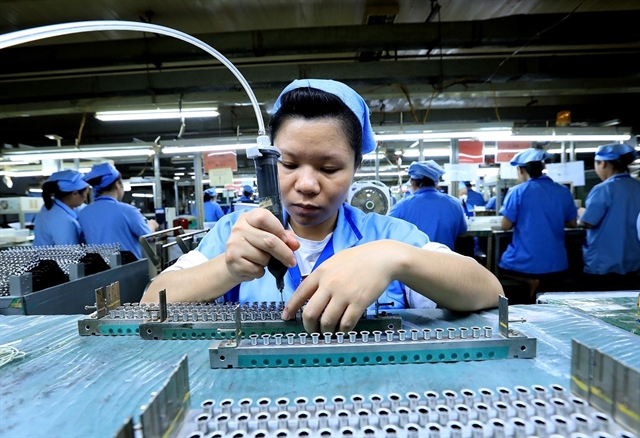PwC’s survey results highlight that business leaders have increasingly diversified their investment portfolios and shifted toward emerging markets in Asia-Pacific and Europe, however they also remain cautious.

HÀ NỘI — Việt Nam ranks sixth among 13 countries and territories considered the top investment destinations over the next 12 months, according to the '28th Annual Global CEO Survey - Asia-Pacific Region’ published by consultancy PwC.
CEOs from companies participating in the survey and planning to allocate capital overseas next year indicated that the US, the UK and Singapore will receive the largest share of their foreign investments. These are followed by China, Hong Kong (China) and Việt Nam.
PwC’s survey results highlight that business leaders have increasingly diversified their investment portfolios and shifted toward emerging markets in Asia-Pacific and Europe.
This trend reflects a strategic effort by businesses to seek new and more flexible investment opportunities in response to global market volatility.
General Director of PwC Việt Nam, Mai Viết Hùng Trân, said that the country is expected to experience a breakthrough acceleration in 2025, driven by the expansion of the middle class, government incentive policies and its position as a premier destination for international investment in Southeast Asia.
“This is the time for Vietnamese businesses to seize opportunities, transform and create new value to lead amid ongoing market fluctuations,” he added.
A total of 1,520 CEOs from the Asia-Pacific region participated in the survey, expressing confidence in the global economy, revenue growth and the long-term viability of their businesses.
The results reveal that 55 per cent of respondents expect the global economy to improve in the coming year, up from 40 per cent in 2024.
Additionally, 34 per cent of CEOs reported being very or extremely confident about their company’s short-term revenue growth, The figure increases 3 per cent from the previous year.
Meanwhile, 54 per cent expressed confidence in their three-year growth prospects, marking a 17 per cent rise.
Only 45 per cent of CEOs believe their companies will survive beyond a decade if they continue with their current business model. Despite being an improvement from 63 per cent in 2024, this figure underscores the need for strategic adaptation.
Specifically macroeconomic volatility, inflation, talent shortages and breakthrough technologies are prompting CEOs to adopt a more cautious approach to investment decisions.
The survey indicates that 44 per cent of CEOs have no plans for overseas investment in the next year, while 17 per cent intend to allocate only a small portion of their budget to such activities.
This cautious sentiment is particularly pronounced among smaller companies with annual revenues below US$1 billion and fewer than 500 employees. It reflects a lower risk appetite amid economic and geopolitical uncertainty.
Many firms may choose to focus on strengthening domestic operations, increasing local production and then exporting to mitigate risks from international market fluctuations. — VNS





